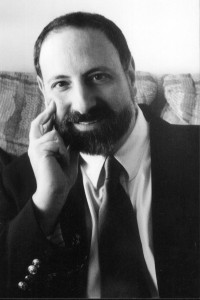Thinking about books
An editor and writer thinks about recent books,
films and television shows — particularly in the science fiction,
fantasy, horror and mystery genres
Night Terrors by Dennis Palumbo
Night Terrors by Dennis Palumbo (Poisoned Pen Press, 2013) is the third in the series featuring Daniel Rinaldi and, as with Fever Dream,
our forensic psychologist with the hero complex has yet again survived
to the end of a book. Back in 2003, there was an appropriately titled
film called the Bulletproof Monk. Once you realised the hero
had supernatural powers, all the silliness of his invincibility faded
into the background. When something is explicitly a fantasy, you
willingly suspend disbelief. But this book pushes the envelope of
credibility as our hero is variously assaulted, rear-ended into a ditch,
and shot at on several different occasions. To say he’s leading a
charmed life is an understatement. Yet, if you’re prepared to look
beyond this blurring of reality, what we have here is an above-average
mystery puzzle for our sleuth to solve. After all, to write a series,
the author is always obliged to keep the hero alive (or else pivot into a
supernatural book in which his ghost continues investigate crimes in
the mortal coil — observing what people say and do is not a problem, but
telling the police whodunnit is a challenge unless they take instant
messages by ouija board).
So
where to start? Well there’s no better place than the first introductory
scenes which represent one of the best starts to a mystery that I’ve
read in quite some time. Boiling it down to its essentials, the
narrative structure of this series is for there to be two “crimes” for
our hero to investigate. In the last book, we had him consulting over a
bank robbery while worrying about why someone committed suicide. This
time he gets called out by a country sheriff who has a confessed killer
in custody. The “accused” says he’ll take them to where the body is
hidden but only if the increasingly high-profile Rinaldi is there to
keep him safe from harm (both internally generated and externally
applied by the local police). Very reluctantly, he gets into his car and
navigates the icy conditions into the night. What they find when they
finally reach the house in the woods is wonderfully atmospheric with a
delightful twist borrowed from the horror genre. The only problem with
such a strong opening is that, by contrast, the pace of the next section
of the book feels so slow. Fortunately, the FBI then invite our hero to
consult on one of their cases.

Dennis Palumbo deciding how not to kill off his hero
Before
his retirement from the Bureau, an old FBI profiler had tracked down a
serial killer who died while in prison. As a direct result of this
death, he may now be on a hit list. Under normal circumstances, he would
support the investigation through his expertise but not only has he
retired, his mind is also worn down through his inability to sleep
properly. He suffers from night terror. Because the FBI agent in charge
considers both Rinaldi and his new patient outside the magic circle,
neither are given access to the case files relevant to the threat.
Needless to say, this excessive following of the book and rigid thinking
is not going to solve the case. The real catalyst for action therefore
comes when the sleep-deprived old guy decides to exit the hotel where
the FBI has him in protective custody. This was not at all what the FBI
operatives were expecting and it leads to Rinaldi going out into the
field with one of the local detectives to interview a witness who may be
able to identify the killer.
In the
midst of this, the mother of the man who has confessed to the first
somewhat gruesome murder contacts Rinaldi. She’s convinced her son is
innocent and a situation is engineered forcing our hero to talk with the
“killer”. But as our sleuth says to this highly respectable woman who
swears her son was with her around the time of death, “If he’s innocent
how did he know where to find the body and why would he confess if he
was innocent?” Two very good questions, I’m sure you’ll agree. As is
always the case when reaching the end of this type of book, our hero is
able to say with compete certainty whether the man who confessed to the
killing is innocent and who has been going around killing a prison
guard, a judge, a prosecutor, and so on. The fact the key scenes of
revelation take place on a factory roof at night gives the second
meaning to the title.
Summing
up, this is a top-class mystery with thrillerish overtones as our
psychologist with an unadmitted death wish triumphs yet again. This is
far better than Fever Dream so Dennis Palumbo is an author developing in technique and threatening to become one of the top mystery writers.
For another review, see Fever Dream.





No comments:
Post a Comment